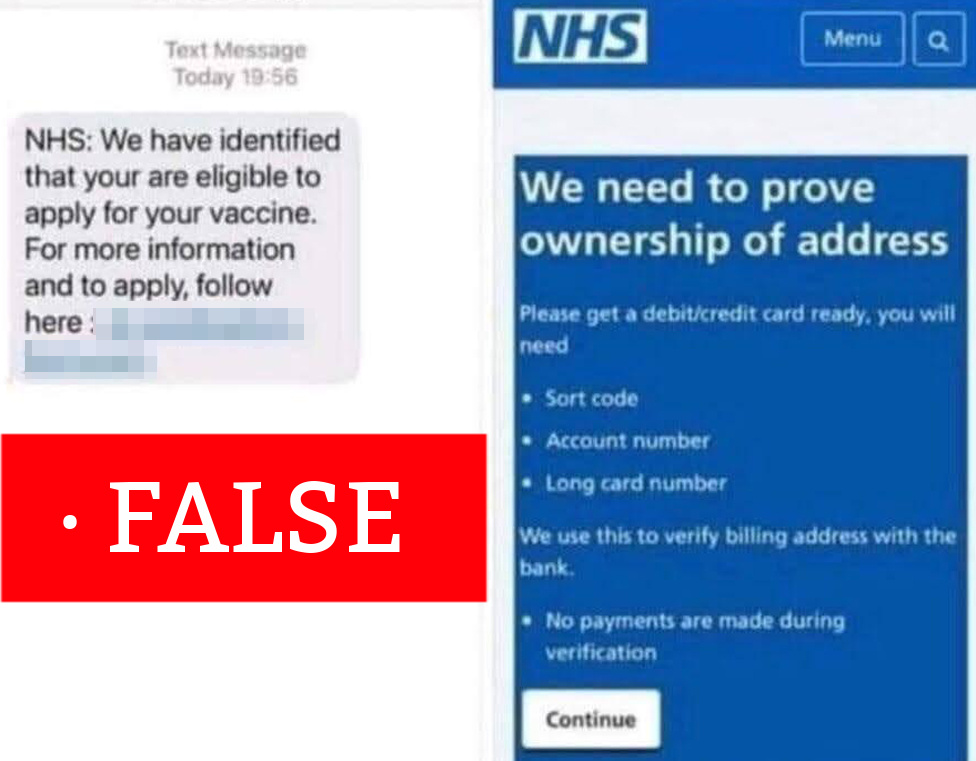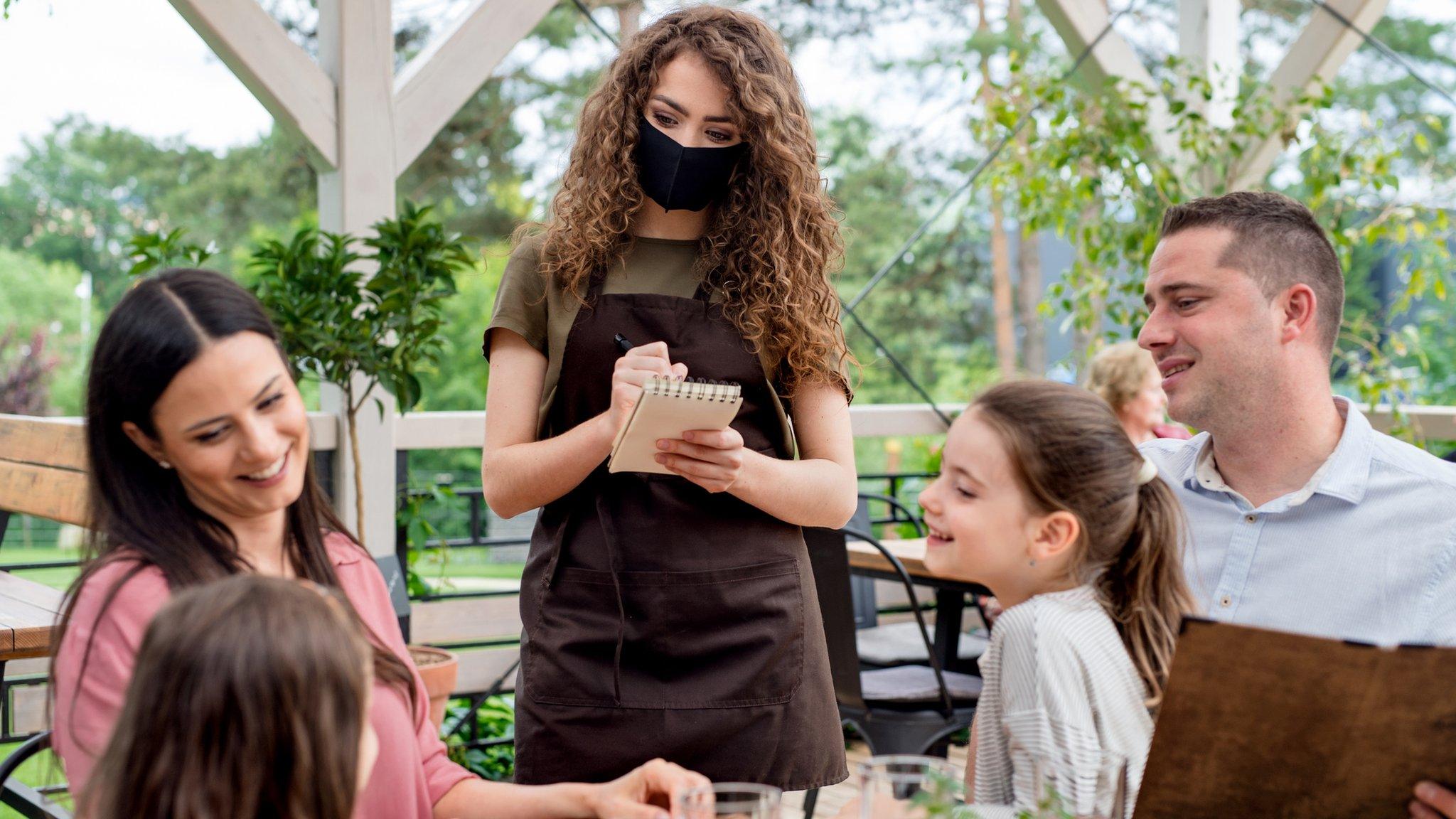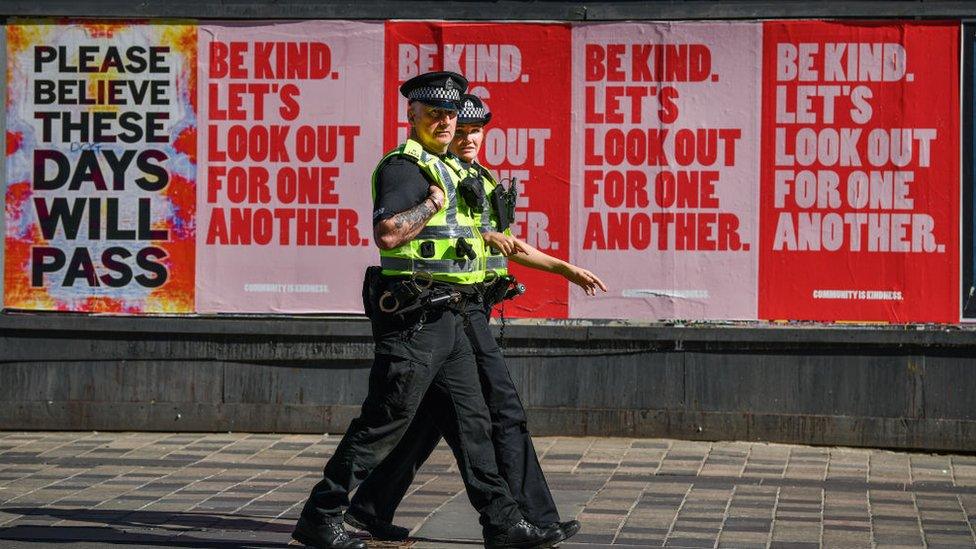Covid-19: Police warning over vaccine scam messages
- Published

The scam messages lead to a convincing website asking for bank details
Fraudsters are sending out fake texts offering a Covid vaccine in an attempt to steal personal and financial information, police have warned.
Derbyshire Constabulary says that the text offers a link to an "extremely convincing" fake NHS website where people are asked to input their bank details to register for a vaccine.
They also say cold callers are asking people to pay for the vaccine over the phone.
There is no charge for the vaccine.

The fake text message, complete with spelling mistake, leads users to a fraudulent website
What does the text say?
A spokesperson for Derbyshire Police said: "The scam message reads 'we have identified that your are eligible to apply for your vaccine' and then prompts you to click on a link for further information or to 'apply' for the vaccine."
"If you receive a text or email that asks you to click on a link or for you to provide information, such as your name, credit card or bank details, it's a scam," the police added.
Similar warnings about the fraud attempt have been posted on local Facebook pages over Christmas and the New Year period.
When checked by the BBC, this particular fake NHS website appears to have been taken down.
It's not the first time this scam has been attempted since the start of the vaccine roll-out.
In late December, Sussex Community NHS Foundation Trust issued a similar warning about fraudulent phone calls and messages.
"In some cases, people are asked to press a number on their keypad or to send a text message to confirm they wish to receive the vaccine. Doing so is likely to result in a charge being applied to their phone bill," the warning said.
A spokesperson for the Sussex trust said: "The NHS will never ask you to press a button on your keypad or send a text to confirm you want the vaccine, and will never ask for payment or for your bank details."
What can you do about these messages?
Criminals have preyed on people's fears over the coronavirus pandemic to steal millions of pounds, according to Action Fraud, the UK's national reporting centre for fraud and cyber crime.
Scams include selling fake Covid cures and non-existent or low quality PPE, as well as posing as official sources to steal personal and banking details from victims.
Action Fraud says that you should never give out personal details, external to organisations or people before verifying their credentials first, even if the message appears to be genuine.
Major organisations will never send unsolicited emails or texts asking for banking details, it says.
Sussex Community NHS adds: "If you receive a phone call you believe to be fraudulent, hang up; and in the case of vulnerable victims, call the police on their non-emergency number."

LOOK-UP TOOL: How many cases in your area?
YOUR QUESTIONS: We answer your queries
GLOBAL SPREAD: How many worldwide cases are there?
THE R NUMBER: What it means and why it matters

- Published1 July 2022

- Published2 April

- Published6 October 2021

- Published5 January 2021

- Published5 January 2021
- Published6 January 2021

- Published5 January 2021

- Published5 January 2021

- Published4 January 2021
